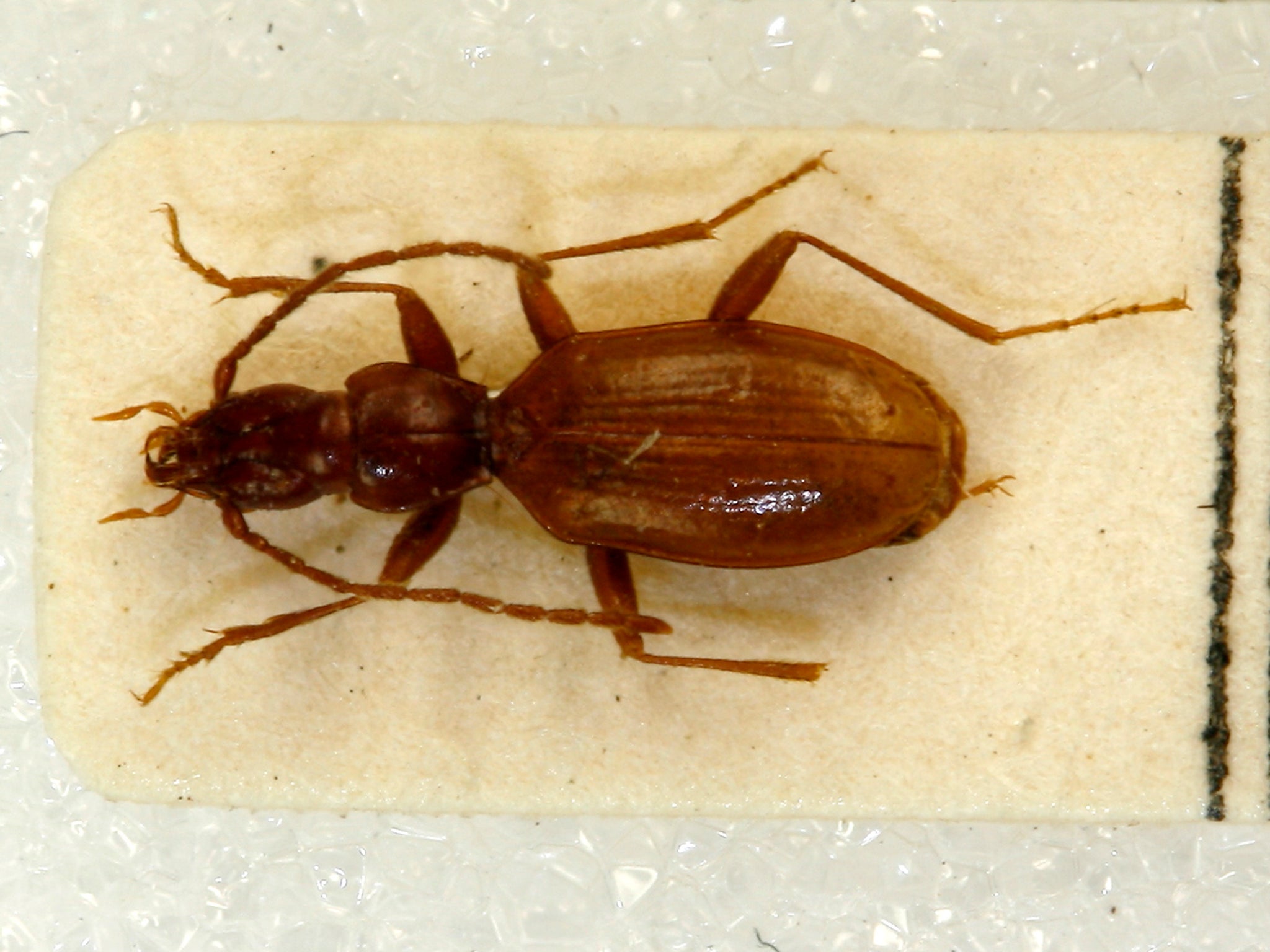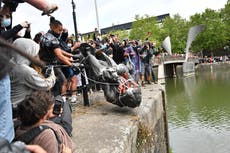Not just statues: Australia’s battle to rename the natural world, including a blind beetle called Hitler
Botanists are calling on colleagues to change the rules to stop plants and animals being named after the worst of humans, reports Stephen Evans


It’s a dilemma taxing some fine scientific minds: should new species of plants and animals be named after the human perpetrators of evil deeds? The statues to slavers may have fallen, but should the names of the men who traded in humans live on in botany?
The botanists who decide on the names of new species in Australia think not. These taxonomists (as the categorisers of new species are called) are appealing to their colleagues around the world to have the international rules changed.
You see the problem: there is, for example, a rare Slovenian beetle called Anophthalmus hitleri, named after Adolf Hitler in 1933 (though the beetle is apparently in danger of extinction because so many neo-Nazis seek it as a kind of memento).
But while the beetle just about lives, under the international rules of taxonomy, so does its name. “There is currently no provision that allows names that are insulting, offensive or otherwise deeply culturally inappropriate to be rejected in favour of more suitable names,” Timothy Hammer and Kevin Thiele write in the journal of the International Association for Plant Taxonomy.
Dr Thiele is particularly exercised about the Australian guinea flower. The yellow bloom is delicate, but he feels its scientific name – Hibbertia – is offensive and should be changed. The genus (the broad category of the plant) was named after one George Hibbert who, it’s true, was a patron of botany – but he was also a slaver, and one who opposed the abolition of slavery.
Hibbert was born in Manchester in 1757 and eventually rose to head the family firm, which had substantial plantations in Jamaica, using slaves to produce cotton and sugar.
Because the genus is Hibbertia, every new type or species within that genus carries the same initial name.
Dr Thiele thinks that is wrong: “Should Hibbert be honoured with the name of a genus of plants to which new species are still being added today – effectively meaning he is honoured afresh with each new publication?”
He has now formally proposed to the international body that decides these things that the codes (one for plants and the other for animals) should be changed.
“Scientists often think they are aloof and living in ivory towers, but they are as much a part of society as anyone else,” he said.
“Just like statues, buildings, and street or suburb names, we think a reckoning is due for scientific species names that honour people who held views or acted in ways that are deeply dishonourable, highly problematic or truly egregious by modern standards.”
Some argue that a name is just a name, and that chopping and changing with the times confuses scientific categories. The director of Taxonomy Australia disagrees:
“We counter that, just like toppling statues in Bristol harbour or removing Cecil Rhodes’s name from public buildings, renaming things is important and necessary if we are to right history’s wrongs.”
Dr Thiele also cites a coral in the Great Barrier Reef known scientifically as Catalaphyllia jardinei, named after Frank Jardine, a brutal dispossessor of Aboriginal people in northern Queensland.
In contrast to plants and animals, places do get renamed. Last year, the government of Western Australia renamed the King Leopold Ranges as the Wunaamin Miliwundi Ranges in accordance with the traditional Aboriginal names of the mountains.
They were named after the Belgian king in 1879 by a European explorer, who admired Leopold’s enthusiasm for exploration and was not put off by the brutality of the king’s reign over the Congo Free State, during which about 10 million people died.
But the Wunaamin Miliwundi Ranges are not heavily settled by white people. The mountains do not contain towns inhabited by people who put up a fight for the old names.
The Perth suburb of Stirling, on the other hand, is, and the name remains despite a campaign to change it. The suburb is named after the first governor of Western Australia, James Stirling, who directed a massacre of Aboriginal people in 1834.
His wealth was also based on slavery, according to the the historian Georgina Arnott, who wrote: “More than a century before he was born, two ancestors pioneered the Glaswegian trade in slave-produced Virginian tobacco, becoming extraordinarily wealthy through it.” But his name lives on.
With places, the naming is at the discretion of govenments and citizens. With species of plants and animals, there are strict rules against changing existing designations – though, oddly, new names can be bought.
It is a mishmash. Apart from notorious characters from history living on through their names being attached to delicate plants or beetles, new names get tagged on by those who buy the naming right.
Four years ago, the British company EnviroBuild burnished its environmental reputation with a neat publicity device: it paid $25,000 (£18,600) for the right to name an obscure Panamanian amphibian Dermophis donaldtrumpi after Donald Trump.
As the company explained: “The amphibians live almost entirely underground, believed to have lost their limbs at least 60 million years ago as an adaptation to burrowing. Burrowing its head underground helps Donald Trump when avoiding scientific consensus on anthropogenic climate change.”
By the way, Hitler himself took a keen interest in the naming of species.
According to The Art of Naming by Michael Ohl, German botanists wanted to rename the Fledermaus (bat in English) and Spitzmaus (shrew) because neither was a mouse.
The Fuhrer was outraged. His private secretary, Martin Bohrmann, warned the uppity scientists that these “asinine renamings” must be reversed immediately:
“Should members of the Society for Mammalogy have nothing more essential to the war effort or smarter to do, perhaps an extended stint in the construction battalion on the Russian front could be arranged.”
The Fuhrer threatened “appropriate measures; under no circumstance should terms that have become established over the course of many years be altered in this fashion”.
Except, no doubt, the name of that obscure blind beetle that lives in the caves of Slovenia: Anophthalmus hitleri.
Join our commenting forum
Join thought-provoking conversations, follow other Independent readers and see their replies
Comments


Bookmark popover
Removed from bookmarks